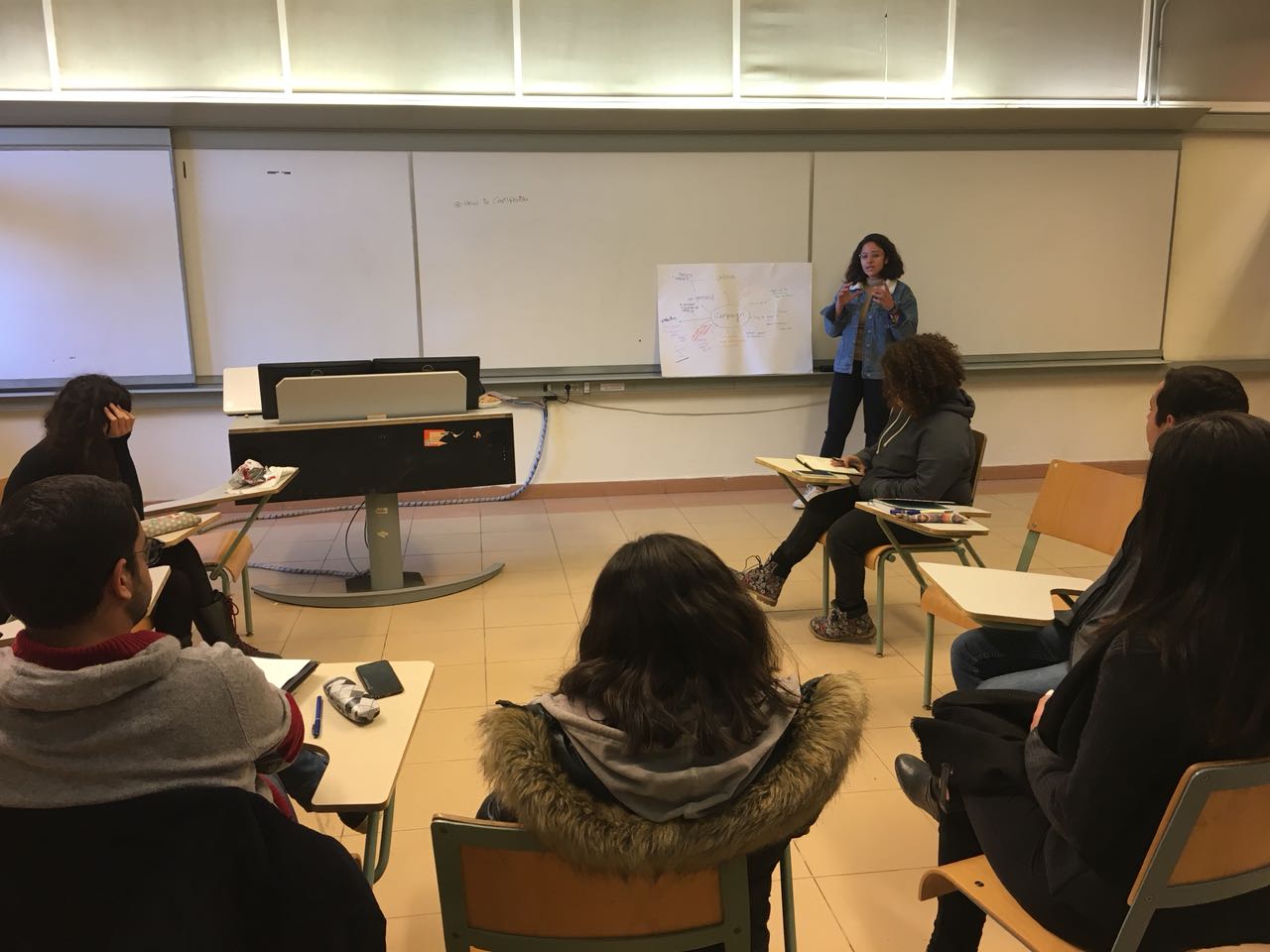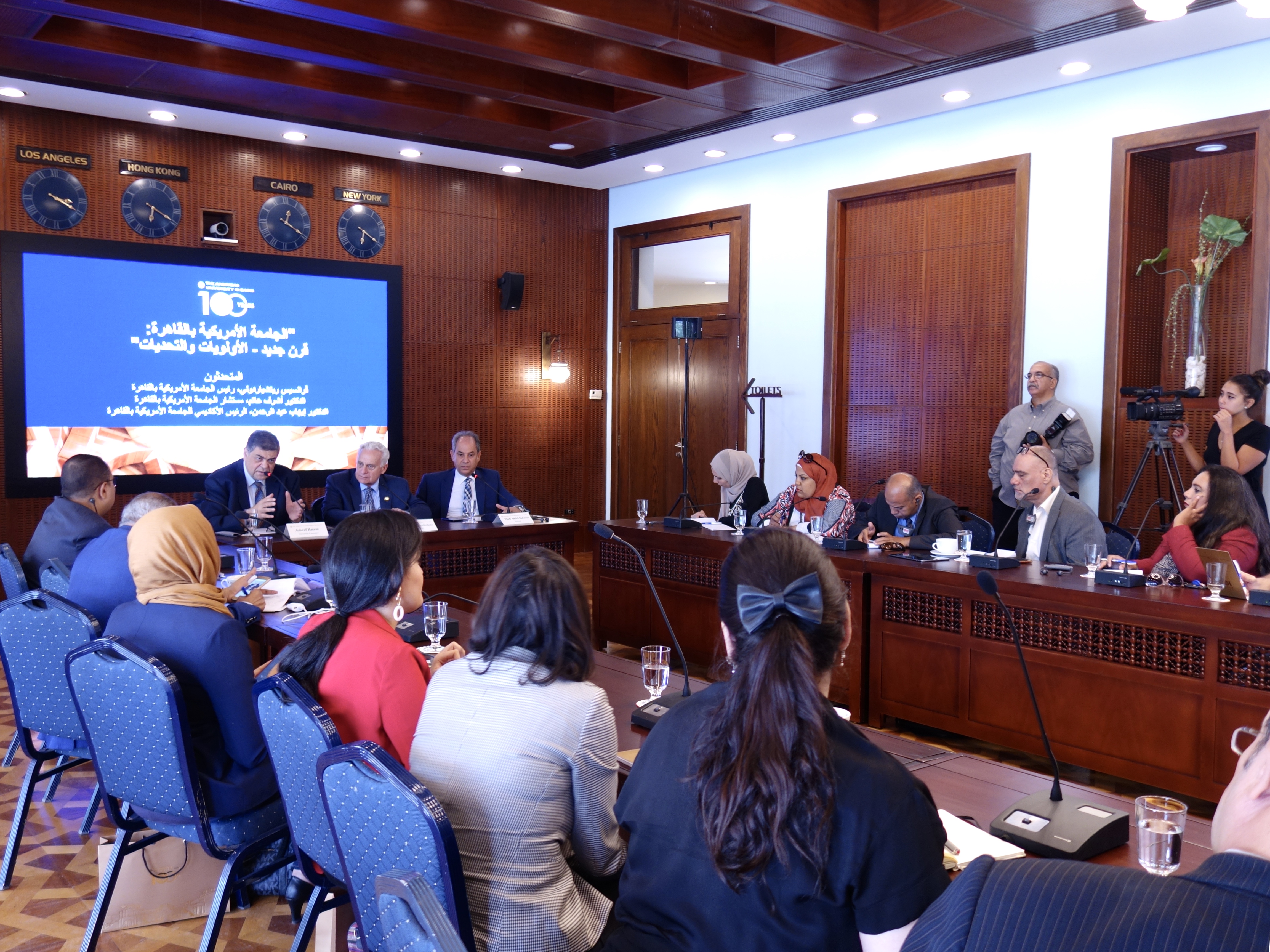Heya: Increased Anti-Sexual Harassment Measures on Campus
By Malak Abdelnabi
Follow @malaksabdelnabi
There has been increased coverage of sexual harassment issues in global media in recent months, with particular emphasis on male abuse of power and influence.
From catcalling on the streets to workplace flirting to groping, the issue of what women face on a daily basis has dominated headlines, particularly after famous Hollywood celebrities were implicated in such violations.
At AUC, more students are coming forward to speak about their harassment and abuse. Whether it is students harassing each other, or being harassed by faculty and staff, the cases are numerous and often go unreported.
The Caravan has documented numerous cases over the past years, but many students are afraid to come forward.
Hoping to encourage students to speak out, the Office of Diversity and Advocacy in collaboration with Heya: The Feminist Initiative on campus launched an anti-sexual harassment campaign this semester.
“We decided that we needed to educate the AUC community about the regulations as well as the resources available for them to file complaints,” Chadi Ben Ghanem, student leader at the Office of Diversity and Advocacy told The Caravan.
According to Article VIII: Students’ Right and Responsibilities, Section 9: of the AUC Student Constitution:
“Students who are harassed, assaulted, stolen from or physically harmed have the right to report wrongdoing to the University Security, identify those responsible when possible, and alert the Office of Equal Opportunities and Affirmative Action of such incidents. Students have a right to fair and diligent investigations regarding such cases.”
Ben Ghanem said that the first step would be for the Equal Opportunity and Affirmative Action Committee to conduct an investigation to find out whether accusations are true or false.
After a verdict has been reached, the Committee decides on appropriate repercussions for the accused student, faculty or staff member.
In previous years, victims of harassment said that they did not know where to file a report of such incidents.
This is where Heya’s campaign steps in.
They want students to feel comfortable coming forward with their stories even if the harassers are their own professors.
“This year we’re trying to make the process of reporting sexual harassment more accessible,” Heya’s President, Alia Afifi said.
Afifi said that sexual harassment on campus is more frequent than many would like to believe.
“People started talking [about this issue] after a screenshot of a man who was sexually harassing women was posted on Rate AUC Professors.”
Some found it unethical to ‘out’ the man on social media while others felt like the woman had every right to post this image on such a public platform.
Afifi also said that punitive action against faculty members are rarely taken because sexual harassment victims are usually too afraid to speak out and fear having to take another course with the same professor.
Negotiations between Heya and the Office of Diversity and Advocacy led to a number of new measures, including the option for students who come forward with their stories to remain anonymous.
Another solution is that students can now share their stories without filing an ‘official case’ at the University.
Ben Ghanem also highlighted the importance of anonymity, saying that “confidentiality is something the office takes very seriously”.
“Those that have been found guilty of any kind of misconduct, whether student or faculty, are punished in the appropriate manner. We do not disclose information about the victims nor the perpetrators.”
The Student Union (SU) has not played a significant role in this issue, Representation Committee Associate Chairperson Omar Atef told The Caravan.
“The only thing we can do is direct students with these types of complaints to the Office of Diversity and Advocacy and have them handle the situation,” he said.
Starting this semester, Heya will function as the official bridge between the Office of Diversity and Advocacy and the AUC student body.




